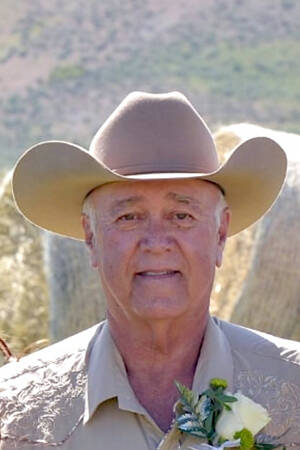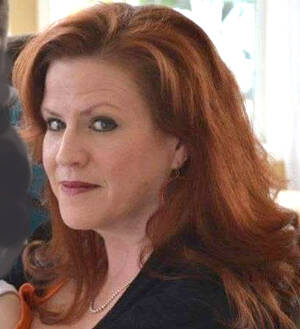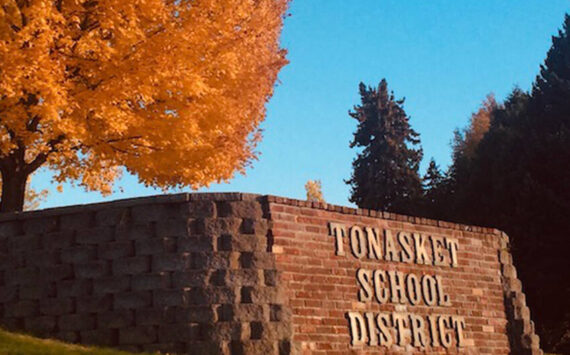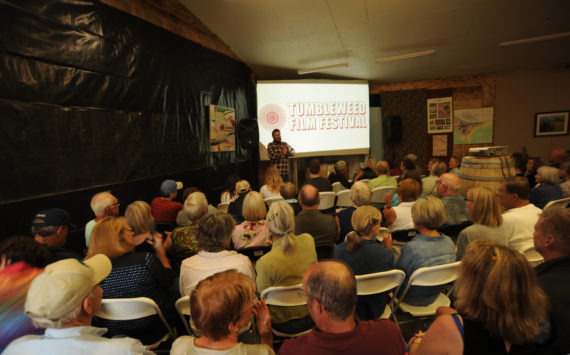A fellow publisher shared a book revue with me this last week. The review appeared in the Wall Street Journal and was written by Daniel Akst about Judy Muller’s book, “Emus Loose in Egner.” The book is about the joys and challenges of publishing a small newspaper.
To those of us in the business the review was hilariously on point. Consider for example, “Community journalism can drive anyone crazy. To those who produce it, the pettiness of local squabbles, the personal nature of every story and the slave wages can be maddening. The experience can be just as exasperating for readers, since small-town papers can’t usually afford outsize talent, and when they are run by a far-off newspaper chain they may not know their community as well as those who live in it.”
It doesn’t take a “far off newspaper chain” to lose touch with the local community. Just living down the road in Leavenworth puts us at a disadvantage in Chelan and the many other communities we attempt to serve. So we work hard to try to develop a staff that lives in the local community and knows what is important. That takes time and sometimes it seems our staff is just beginning to understand the community when they are drawn in by the big city lights and offers of literary greatness by bigger and wealthier organizations.
“Yet small-town journalism is also where much of the profession’s quirky grandeur lies… as Muller shows in her engaging account of local journalism outside the major urban hubs. Without the muscle of a big-city newspaper – or the benefit of working at arm’s length from public officials and advertisers – the passionate lunatics who put out America’s small-town weeklies labor to keep local politicians honest while coping with anger, threats, pleading, exhaustion, poverty and, often, instead of gratitude, cold shoulders from neighbors on the checkout line at the IGA,” writes Akst.
That paragraph reminded me how we are still being “punished” by the politicians in Brewster who are angry that we would have the audacity to call them on their obvious violations of Washington’s open meetings law. In retaliation they have awarded the contract for publishing the city’s legal advertising to any newspaper other than ours – the only one that actually covers their city’s news.
I was also reminded of a comment from my cousin Jim in Montana, “You know community news has become a lot more fun to read now that my kids are grown!” Covering the lives of local residents and subscribers is a tightrope that often draws the anger, threats and cold shoulders from the neighbors and friends.
As the big city dailies are beginning to fail many experienced journalists are returning to the joy of working for a small town weekly. Akst calls these reporters the “Green Acres” variety of newshound, the kind who moves out from the city only to find trouble in paradise. Transplanted news gatherers tend to get exercised about environmental threats or real-estate development, and there is sometimes a quixotic dimension to their crusading.
The art of human communication is treacherous and often painful. One of my jobs as owner of a group of small community newspapers is fielding complaints from readers about stories we have run or sometimes, not run. Following those calls I have often have some very painful and challenging discussions with staff about their work and sensitivity, or lack thereof. Yet, taken together, these plucky reporters serve a function simply by holding up a mirror, however distorted, in which communities can see themselves and think about the meaning of local events.
Don’t take me wrong. We may not always get it right but we do endeavor each day to reflect not just on the great news that comes with living in this beautiful place, but also on the challenges we all face in making our collective lives better.
I encourage those of you who feel we have gotten it wrong to write a letter to the editor, call or send an email and let us know. We are, after all, imperfect human beings and your feedback will help to make your local newspaper even more relevant and valuable. There are too many in our society today who simply refuse to participate when they disagree with the messenger. Such withdrawal does not advance their cause or help any of the rest of us understand their position.
I hope that by reading this, you can appreciate the passion we put into every issue. You still need to challenge us when you think we could have done a better job, but I hope this article will give you some sense of who we are and why we do what we do.
One final note, as I make the rounds in the communities we serve, I often hear the comment “newspapers are dead – or dying.” Nothing could be further from the truth. Local community newspapers like ours are suffering from the bad news that is hitting the dailies hard, but our circulation is still the dominant source of information in all of our local communities. In a survey completed last year 76 percent of those surveyed said they get their local news from the newspaper. And when I listen to the tech heads talk about the power of the Internet, I am encouraged by the fact that our websites have more regular visitors than the chamber of commerce, city or any other local website combined. The web will not be the death of newspapers. Without the investment newspapers make in covering their local communities the Internet will be nothing more than a time consuming wilderness of unreliable vanity news, rumor, and unsubstantiated accusations.
The Internet needs the professionally developed content newspapers provide. Without it the technology is nothing more than an expensive toy. And the Internet gives weekly newspapers like ours the power to increase our frequency, add video or audio and help you link to the outside world with ease. That is what is killing the dailies.







